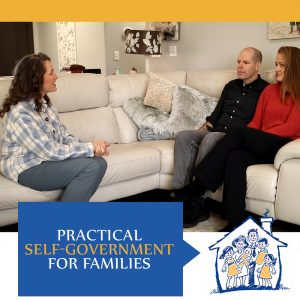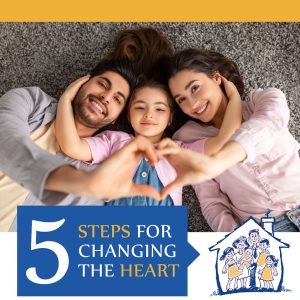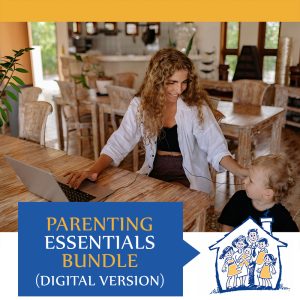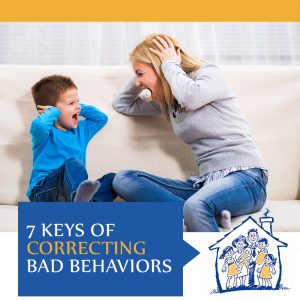The Kindness Advantage
Choosing kindness strengthens relationships, increases resilience and promotes emotional non-fragility, helps us solve problems, and is a choice that leads to happiness. Many parents tell me that they hope for their child to develop kindness. Indeed, kindness is a characteristic that develops. It’s a word that describes actions that display love or respect for others. Learning kindness is environmental, logical, emotional, social, and spiritual.
Five-year-old Sullivan recently told me, with much animation, that his friend took his shoe and hid it in a dark room and wouldn’t tell him where it was. At first, I thought that little Sullivan was telling me something that he felt was exciting or even funny, so I asked, “Did you think it was funny?”
Sullivan looked up into my eyes and said, “No. I didn’t like it. My friend thought it was funny to take my shoe but I didn’t think it was funny. Why would she do this to me?” he asked. His distress about the situation was obvious. He was clearly sorting it out, wondering why his friend would be unkind.
To his credit, and the credit of his parents, Sullivan took the unkindness in pretty good form. He didn’t cry or get angry; he just talked about it. But, I could tell that he felt taking shoes was something that he wouldn’t do to one of his friends, so it didn’t make sense to him. He seemed to feel wounded because his friend didn’t show him kindness.
I told Sullivan that he was doing good at being calm about the situation and that the girl probably thought it would be funny to take his shoe. I let him know that sometimes, when a person thinks of you as a really good friend, they start to tease you. It’s immature and intended to get laughs at someone else’s expense, but it does happen. He really didn’t understand why a person who liked him would tease him because that isn’t how he would behave.
Sweet Sullivan understood kindness and friendship that day. When his shoe was taken, he initially questioned his relationship with his friend, but then he chose kindness and fixed the relationship on his side. Sullivan experienced four key advantages from choosing kindness that day that we can all experience when we choose kindness, too.
4 Key Kindness Advantages
Kindness strengthens relationships. When we choose to serve or speak kindly to people, we change the way we see ourselves and the person we are showing kindness to. Even if a person does something that frustrates or annoys us, we have control over the way we think of them and value them. When we choose to speak and act kindly, both parties get the message that we care about the other person. Kindness shows caring, which leads to valuing others and eventually bonding. A mother who gets perpetually whined at by her child, but still chooses to love and serve her child, is actually preparing herself to bond despite the tantrums. And the child sees that the strongest person in their life, their mother, cares about them even if they don’t act the best.
Kindness increases resilience and promotes emotional non-fragility. When something bad happens to us, it’s tempting to engage in fault-finding or choosing to be offended and emotionally detaching from the person who was unkind. However, just like Sullivan did with his shoe situation, if we choose kindness despite the unkindness of others, we are more able to make it through difficult situations and even choose to be calm and okay despite the unfortunate circumstance. Sometimes it’s required to address a situation, and Sullivan did have to explain the situation to the adults to get it resolved. However, because he chose to be calm about the situation, he recognized that he doesn’t need to be fragile in every circumstance. He can be emotionally strong and talk about things with adults.
Kindness helps us solve our problems and even empowers us because it’s a choice. Just like Sullivan chose kindness, we can all choose kindness even in difficult social situations, as well. Even though Sullivan was experiencing some distress, he kept communicating with his friend and kindly talked to her and others about the problem. He kept valuing his friends and focused on helping them change the situation instead of emotionally battling it out with them. Since he chose kindness, despite the circumstances, Sullivan was able to solve his emotional problems caused by the loss of his shoe and even feel empowered enough to smile about the situation afterward. Kindness changed his attitude toward the whole situation and the people who were part of it.
Kindness leads to increased happiness. Happiness is also a choice; however, many people look for the negative in others and in circumstances. Pessimistic people often treat others worse than optimistic people because their focus points away from happiness. When a person shows kindness, no matter the circumstances, that person will feel happy with their life. Kind people experience more connection to others. Increased personal connections and relationships are a vital component for happiness. When we treat others with kindness and respect, we feel closer to those people, and this makes us feel more valuable in general. Feeling valuable leads to feelings of happiness. Most people who habitually gossip are grumpier than those who choose kindness and focus their thoughts on the good things about others.
Five-year-old Sullivan was braver in his trial than some people 10 times his age might be. I’ll never forget the image of him walking to his car with one shoe on his foot and carrying the other one while kindly talking with me about the fun time he had at the party. Like Sullivan, we can all have improved relationships and emotional resiliency, as well as solve our problems better and increase our overall happiness, by choosing kindness, too. Focusing on kindness is a gateway to freedom that we can all walk through…if we choose.
Want better bonding? Nicholeen is teaching “10 Habits For Building Better Family Bonds.” See information on this event here.
Index
- Addictions, Adult Children, Adults, Age, Attitude, Behaviors, Boundaries, Bullying, Calm, Changing Hearts, Character Building, Common Vision Creation, Connecting (Looking in the eyes), Control, Culture, Dropping the subject, Emotions, Encouragement, Expectations, Family Culture, Family Unity, Grandparents, Group Problem Solving, Health, Power of Calm, Praise, Pre-Teach, Problem Solving, Relationships, Seek to Understand, Shy Children, Skills, Social, Social Skills, Structure, Teens (Youth), Toddlers & Younger Children, Tone, Tweens






